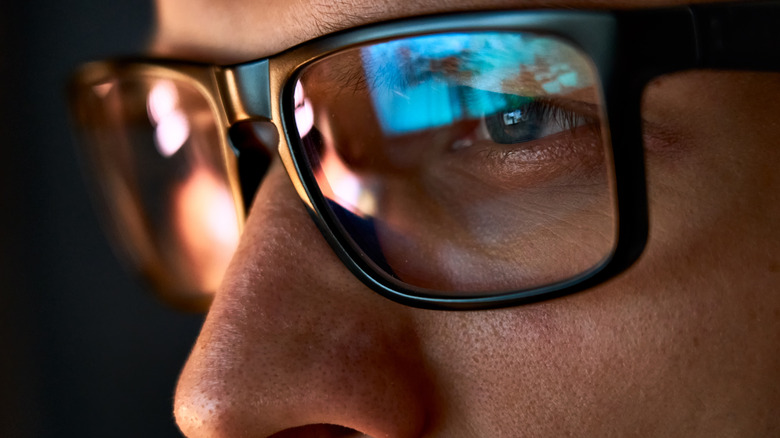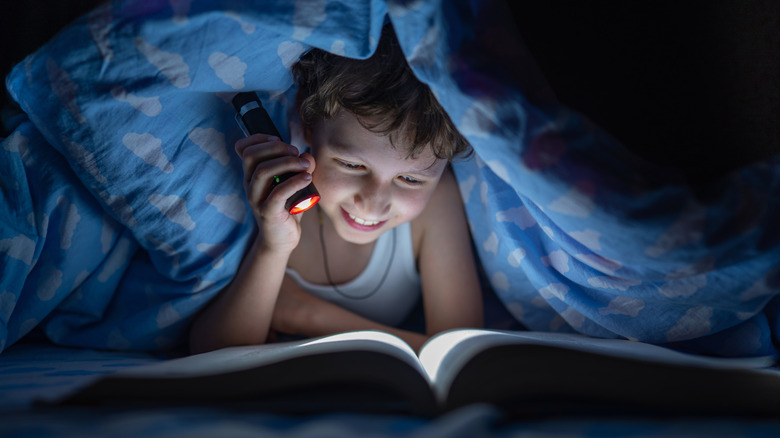What Reading In Dim Light Really Does To Your Eyes
The idea that reading in dim light will damage your eyes is accepted just as surely as the notion that getting soaked in the rain will lead to a miserable cold. After all, parents have been telling their children both of these things for generations as a way to get the kids to finally go to sleep, or at least put on a jacket. But are they true? Research on both fronts provides us with a resounding 'no.'
So what actually happens when the sun goes down but our book is just too riveting to put away? Well, it makes it harder for the eyes to focus, which can lead to eye strain and fatigue. Oddly enough, all that intensive focus can also lead to less blinking, which can in turn lead to dry and uncomfortable eyes. We normally blink around 15 times per minute, and each blink helps lubricate and cleanse the eye. When we're reading, however, we reduce those blinks to only about three to eight per minute (via Vision Source).
Reading in low light can cause fatigue, but not long-term damage
But as bad as it sounds to have dry and tired eyes, these effects are temporary and quickly go away once we stop reading. Richard Gans, an ophthalmologist with the Cleveland Clinic Cole Eye Institute, notes, "There is no scientific evidence that reading in the dark does any long-term harm to your eyes" (via WebMD).
Researchers now believe that genetics play the most significant role in whether or not someone becomes myopic (nearsighted), and that environment plays a lesser, but still significant role. Spending a lot of time focussing on things at close range (like while reading or sitting at a computer) does seem to be somewhat associated with the development of nearsightedness in adults. But even that factor is not as strong a predictor of myopia as low birthweight or smoking while pregnant (via BBC).
So if it's late and the lights are low, but you just can't stop reading, don't worry. Reading by a brighter light might be more comfortable, but, either way, you'll still wake up in the morning with normal vision.


